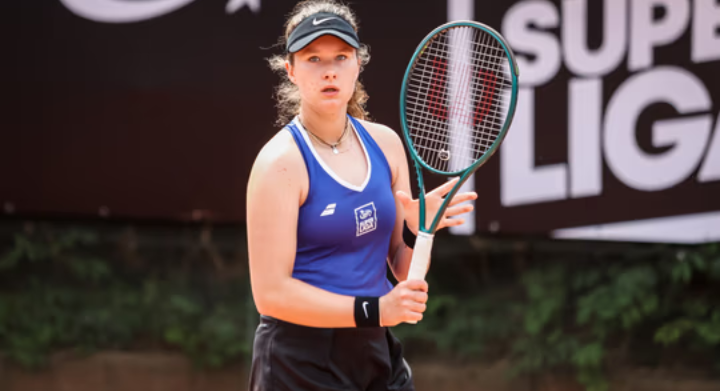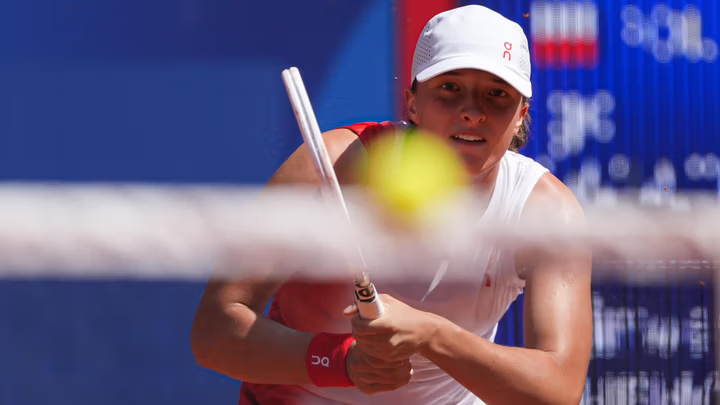Not Just for Monetary Reasons but Alexander Zverev Demands Saudi Tour to Be Included to Solve This Tennis Problem

Alexander Zverev, one of the brightest stars in professional tennis, has never been one to shy away from voicing his opinions on the sport’s pressing issues. Recently, Zverev made headlines by advocating for the inclusion of the Saudi Arabian Tennis Tour in the official ATP calendar—not just for its lucrative financial incentives but to tackle a deeper problem plaguing the tennis world.
This bold stance comes at a time when the tennis landscape is witnessing increasing discussions about sustainability, player well-being, and the growth of the sport in non-traditional regions. Zverev’s comments, while sparking controversy, also shed light on an important conversation about the future of tennis.
A New Frontier for Tennis?
Saudi Arabia has rapidly emerged as a major player in the global sports scene. From hosting prestigious golf tournaments to acquiring stakes in high-profile soccer clubs, the country’s investment in sports is unparalleled. Its recent foray into tennis, however, has raised eyebrows. Critics accuse Saudi Arabia of using sports as a tool for “sportswashing”—improving its global image despite ongoing concerns about human rights.
Zverev, however, views the Saudi Tennis Tour differently. “This isn’t just about money,” he explained in a press conference. “Yes, the financial backing is important, but what’s more crucial is how it can address a significant problem in our sport: the lack of opportunities to play in diverse regions and for players outside the top 50 to earn a living.”
Tennis’s Growing Problem
Zverev’s concerns center on the distribution of tournaments and prize money. Tennis is heavily concentrated in Europe, North America, and Australia, leaving many parts of the world underrepresented. This lack of geographic diversity not only limits the sport’s growth but also creates barriers for players from emerging markets.
Additionally, lower-ranked players often struggle financially despite competing at the professional level. Unlike sports like soccer or basketball, where even bench players earn substantial incomes, many tennis players outside the top tier rely on small tournament earnings to cover travel, coaching, and other expenses.
Zverev believes that Saudi Arabia’s resources could alleviate these issues by introducing more tournaments and increasing prize pools, thereby making the sport more sustainable for players at all levels.
A Debate Over Values
While Zverev’s argument has merit, not everyone in the tennis community agrees with his perspective. Critics argue that associating with Saudi Arabia could damage tennis’s reputation due to the country’s controversial track record on women’s rights, LGBTQ+ issues, and press freedoms.
Former world number one and vocal activist Martina Navratilova expressed her skepticism. “Tennis has always been a sport that values equality and inclusion. We need to ensure those values aren’t compromised for financial gain,” she remarked.
Others, however, see the potential for positive change. By engaging with Saudi Arabia, they argue, tennis could serve as a platform for cultural exchange and progress.
A Balancing Act for Tennis Governing Bodies
The ATP and WTA, the sport’s governing bodies, face a tough decision. On one hand, expanding to Saudi Arabia aligns with their goals of growing the sport globally. On the other hand, they risk alienating fans and players who are critical of the country’s policies.
Recent efforts to diversify the tennis calendar—such as the introduction of new tournaments in China and Mexico—have proven successful. These events have not only attracted large audiences but have also inspired the next generation of players in those regions. Zverev argues that Saudi Arabia could replicate this success on an even larger scale.
Zverev’s Vision for the Future
For Zverev, the issue boils down to long-term sustainability. “If we want tennis to remain competitive and inclusive, we need to think beyond tradition. The sport can’t thrive if it’s confined to the same regions and players,” he said.
The German star also highlighted the role of technology and innovation in making the sport more accessible. He suggested that the Saudi Tennis Tour could experiment with new formats, such as mixed-gender events or shorter matches, to appeal to younger audiences.
What’s Next?
As tennis grapples with these complex issues, Zverev’s comments have sparked a broader dialogue about the sport’s direction. Will the Saudi Tennis Tour be the next step in globalizing tennis, or will it face too much resistance from within the community?
For now, Zverev remains hopeful. “Tennis has given me so much, and I want it to do the same for players around the world. Whether it’s Saudi Arabia or anywhere else, we need to ensure the sport continues to grow and adapt to the times.”
As discussions continue, one thing is clear: the future of tennis will depend on striking the right balance between tradition, innovation, and inclusivity. Whether the Saudi Tennis Tour becomes a reality remains to be seen, but the conversation it has sparked is a step in the right direction.




